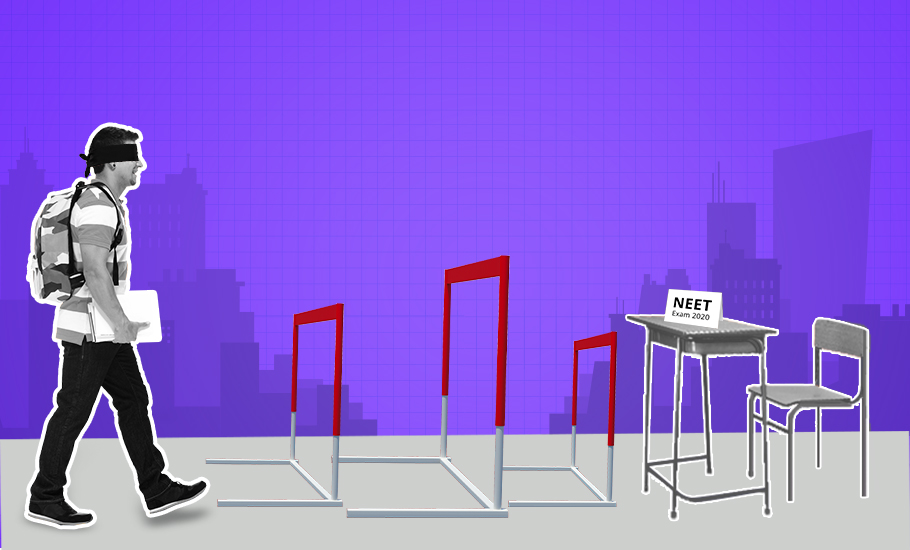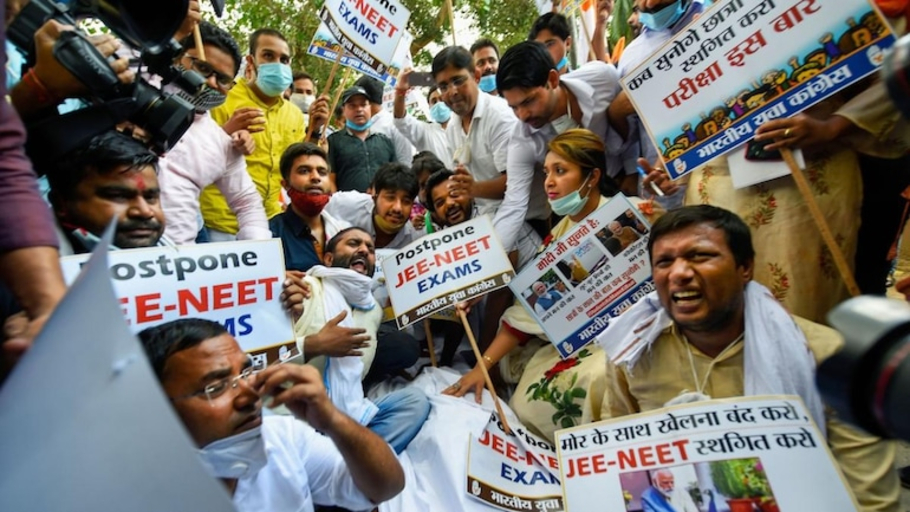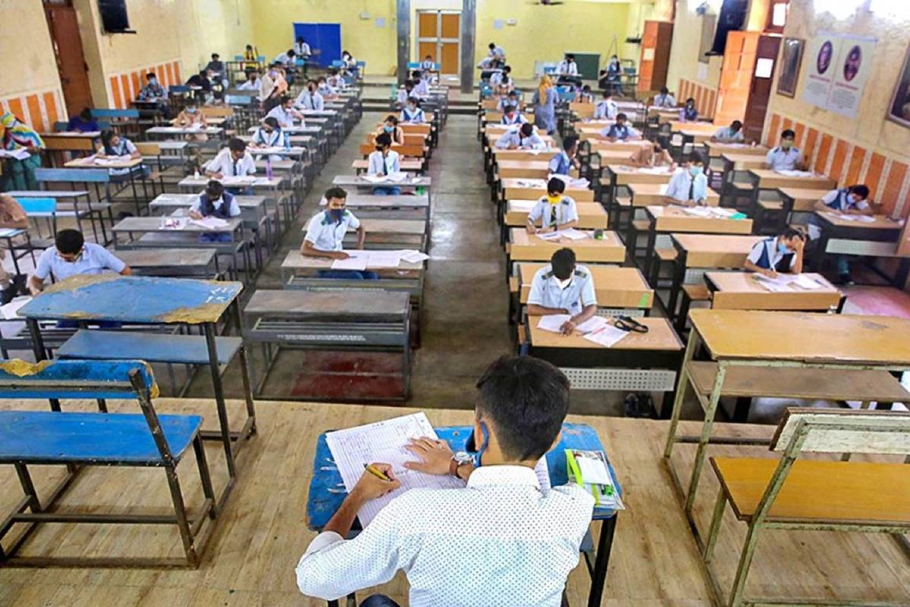
- Home
- India
- World
- Premium
- THE FEDERAL SPECIAL
- Analysis
- States
- Perspective
- Videos
- Sports
- Education
- Entertainment
- Elections
- Features
- Health
- Business
- Series
- In memoriam: Sheikh Mujibur Rahman
- Bishnoi's Men
- NEET TANGLE
- Economy Series
- Earth Day
- Kashmir’s Frozen Turbulence
- India@75
- The legend of Ramjanmabhoomi
- Liberalisation@30
- How to tame a dragon
- Celebrating biodiversity
- Farm Matters
- 50 days of solitude
- Bringing Migrants Home
- Budget 2020
- Jharkhand Votes
- The Federal Investigates
- The Federal Impact
- Vanishing Sand
- Gandhi @ 150
- Andhra Today
- Field report
- Operation Gulmarg
- Pandemic @1 Mn in India
- The Federal Year-End
- The Zero Year
- Science
- Brand studio
- Newsletter
- Elections 2024
- Events
- Home
- IndiaIndia
- World
- Analysis
- StatesStates
- PerspectivePerspective
- VideosVideos
- Sports
- Education
- Entertainment
- ElectionsElections
- Features
- Health
- BusinessBusiness
- Premium
- Loading...
Premium - Events

How uncertainty amid COVID-19 is hurting JEE, NEET aspirants

S Kavi Darshini, an 18-year-old girl who has completed her Class 12 from a government school in Krishnagiri district of Tamil Nadu, is full of anxiety these days as she doesn’t know how she will attend the NEET exam on September 13 at the exam centre in Coimbatore, which is over 300 km away from her house. “Though the restrictions on travelling have been lifted, I don’t know how I...
S Kavi Darshini, an 18-year-old girl who has completed her Class 12 from a government school in Krishnagiri district of Tamil Nadu, is full of anxiety these days as she doesn’t know how she will attend the NEET exam on September 13 at the exam centre in Coimbatore, which is over 300 km away from her house.
“Though the restrictions on travelling have been lifted, I don’t know how I would travel from Krishnagiri to Coimbatore to attend the NEET exam. It is the biggest challenge I am facing now,” she says.
As she looks for cheaper options to travel, she fervently hopes, like thousands of other candidates that the exam is postponed or cancelled.
A major row has been brewing between the government and some students and parents — with some political parties supporting them — over the conduct of the Joint Entrance Examination (JEE) and the National Eligibility cum Entrance Test (NEET), which have been scheduled for September 6 and 13 respectively, following much confusion and uncertainty since it was postponed from the initial date on May due to the COVID-19 pandemic and lockdown.
While some students and parents have demanded further delay in the conduct of the exams as they were unable to prepare due to the uncertainties prevailing during the COVID-19 lockdown, the government is bent on holding the exams.
Union Education Minister Ramesh Pokhriyal has said that over 90% of the students have downloaded the admit card, and so the exam will be conducted at any cost.

Several opposition leaders and education experts have voiced concerns over the conduct of the exams and supported the demand of parents and students to delay the exams.
Transport concern
However, a major concern most candidates cite is the lack of inter-state and intra-state public transport for reaching the exam centres. This leaves students from the economically backward sections of the society at a disadvantage as those better off would use a private vehicle to reach the centre and take the exam.
Some of the poorer students who are taking up the NEET exam say they have to arrange for money for the travel, as their parents’ livelihoods have been hit by the COVID-19 lockdown.
Although the Tamil Nadu government has announced the opening of public transport from September 1, this will be restricted only within the districts. For Kavi Darshini, this would mean changing at least three buses.
“Even if there was public transportation available, I should take the bus at midnight to reach the centre by early morning as the travel duration is minimum 6 hours from Krishnagiri to Coimbatore. Now, I am calling my friends in Krishnagiri to find out their mode of travel and possibly share the vehicle,” she says.
A government school headmaster in Coimbatore, who has been coaching students for NEET says not all districts in Tamil Nadu have examination centres. This would lead students to choosing districts they are familiar with, he says, rather than those close to them. Sometimes, this is because the districts are the ones that they had planned to take up coaching in.
With little preparation for the exam, MS Priyadarshini, a student of a government school in Coimbatore, says that it’s going to be a double whammy for them.
“The government had scheduled coaching classes for NEET aspirants after the public examination (board exams), but ever since the lockdown, we could not come out of our house even to buy study material. We managed to learn only by looking at the television and some online material. But I did not understand that much,” says Priyadarshini.

Skipping NEET, JEE exams
Some students in Karnataka and West Bengal who have downloaded their admit cards are planning to skip the exam. Channabasava Yadagiri, 18, an OBC student from Gangavathi, Koppal, a backward region in Karnataka about 370 km from the state capital, Bengaluru, is one among them.
Yadagiri has been allocated an exam centre in Bokaro, Jharkhand, which is 1,850 km away. Crossing the state borders amid rising COVID-19 cases and with the lockdown restrictions in place, Yadagiri says it is better to skip the exam than travel all the way to Jharkhand.
The student’s passion for his profession and his dream of becoming a doctor is at stake as the administration — the state Higher Education Ministry and the NTA, under the Union Education Ministry — hasn’t responded to his plea to reallocate the centre within Karnataka.
While he says he will attempt the JEE exams, he says he still loses certain opportunities. “This confusion stresses me a lot. My studies are getting affected. I have to spend time fighting for changing my exam centre at a time when I have to study for exams instead.”
COVID scare
Dr GR Ravidranath, secretary of Doctors’ Association for Social Equality, suggests postponing the exams for a specific period of time to prevent any outbreak due to the increasing number of COVID-19 cases.
“The exam centres are very inappropriately placed and students will have several issues such as travel, accommodation, other than getting exposed to the infection,” he says
He also says that the government should increase the number of examination centres as one of the preventive measures. This would also help solve the transport problem, if centres are located near to students. “But, unfortunately, the infrastructure required to conduct the exams are not available in the various states,” he adds.
According to the National Testing Agency, in the wake of the pandemic, in order to ensure social distancing norms, the number of examination centres for JEE main exam has been increased from 570 to 660 and for NEET exam has been increased from 2,546 to 3,843.
The National Testing Agency (NTA) has required maintaining of COVID-19 protocol in all examination halls. To ensure proper social distancing, alternate seating has been directed for JEE (Main) exam. For NEET (UG), the number of candidates per room has been reduced to 12 from 24 earlier.
Temperature checks will be done and those having above 99.4 degrees Fahrenheit will be moved to an isolation room, after which their documents would be checked and test taken.
An NTA official told The Federal that they are in the process of checking with the students regarding their complaints with the examination centres. “We are reaching out to the students through SMS and mail. We will sort it in a week’s time,” the official said, requesting anonymity.
The official also said that after confirming the examination centres, a communication would be sent to the candidates on the process of staggered entry of students inside the exam centre.
Declare Zero year
However, as COVID-19 cases keep rising in the country — around 75,000 new cases were being detected every day in the last few days — experts warn of larger consequences.
Anindita Bhadra, assistant professor at IISER, Kolkata, tells The Federal that one wouldn’t know what would happen if the students get exposed to COVID-19 while they are writing their exams, and come back and infect their grandparents or parents or their little siblings.
Advocating a “zero year” for all students wherein every student foregoes one year of their education, she says this would resolve the issue of uncertainty over the exams. “Every other day, you don’t know whether you have to write this exam or not. You prepare for one month and the exam is called off or postponed… These kids are under so much stress, preparing for the exams for two years, and the uncertainty involved is humongous.”
“We don’t know whether we are going to survive this pandemic tomorrow as an individual, and we are putting so much stress on our children just because we need to get them into the next stage of life, which itself is uncertain,” Bhadra says.
(With inputs from Prabhu Mallikarjunan and Venkataraghavan Srinivasan)
